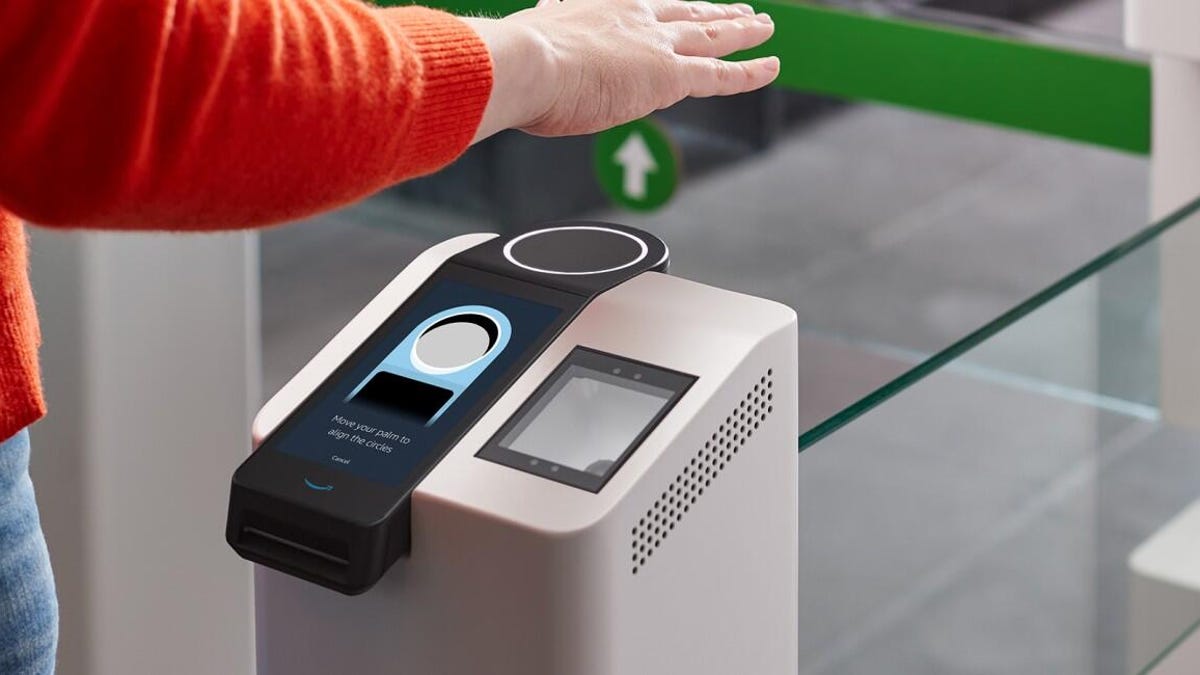 Why You Can Trust CNET
Why You Can Trust CNET Amazon's palm-reading payment tech coming to Whole Foods
The contactless biometric scanners will be creeping into Seattle stores over the coming months.

In Amazon's latest push toward biometric payment tech, seven new stores in Seattle will have palm readers installed.
Expanding on its 2020 rollout of biometric payment tech, Amazon said Wednesday it will be adding its Amazon One palm readers to seven Whole Foods stores in Seattle over the coming months. The devices were previously only available as a payment option in a dozen of its brick-and-mortar Amazon Go stores.
To sign up for the payment option, you first hover your hand over the device's scanner and then give the machine your credit card information, which Amazon links to your biometric data. After you've signed up, you can pay at any Amazon One kiosk by allowing the machine to scan your palm. The company said thousands of people have already signed up for the system.
It remains unclear, however, if any third-party companies have access to those thousands of users' uniquely identifiable biometric data -- an uncertainty which has raised security and privacy concerns.
"We designed Amazon One to be highly secure," the company said in a Wednesday release. "The Amazon One device is protected by multiple security controls, and palm images are never stored on the Amazon One device. Rather, the images are encrypted and sent to a highly secure area we custom-built for Amazon One in the cloud where we create your palm signature."
While palm readers don't collect the same data as face scanners, Amazon's track record with handling biometric data still remains highly controversial following public uproar over its use of facial recognition technology, which lets cops track faces. The outcry prompted Amazon to pause its services to law enforcement agencies for one year, even as it spent $24,000 lobbying to kill Portland, Oregon's privacy-focused facial recognition ban legislation.
More recently, Amazon saw a wave of Amazon Prime drivers quit after being told they'd be required to consent to biometric data monitoring in order to keep their jobs.
For more: Lawmakers accuse tech giants of using privacy as a weapon to hurt competition

